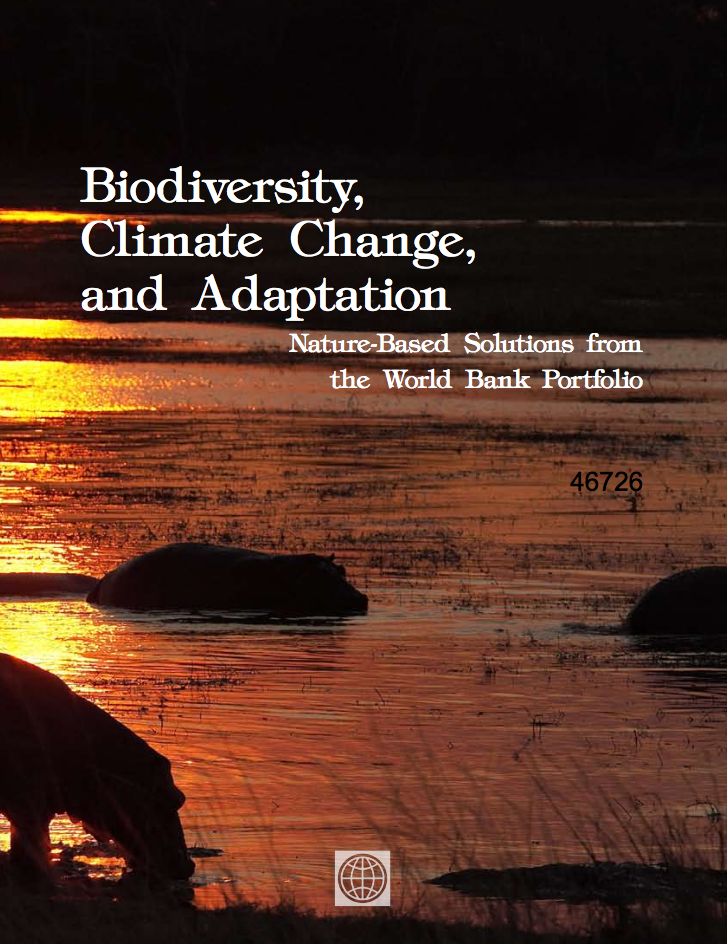The World Bank is a vital source of financial and technical assistance to developing countries around the world. We are not a bank in the ordinary sense but a unique partnership to reduce poverty and support development. The World Bank Group has two ambitious goals: End extreme poverty within a generation and boost shared prosperity.
- To end extreme poverty, the Bank's goal is to decrease the percentage of people living on less than $1.25 a day to no more than 3% by 2030.
- To promote shared prosperity, the goal is to promote income growth of the bottom 40% of the population in each country.
The World Bank Group comprises five institutions managed by their member countries.
The World Bank Group and Land: Working to protect the rights of existing land users and to help secure benefits for smallholder farmers
The World Bank (IBRD and IDA) interacts primarily with governments to increase agricultural productivity, strengthen land tenure policies and improve land governance. More than 90% of the World Bank’s agriculture portfolio focuses on the productivity and access to markets by small holder farmers. Ten percent of our projects focus on the governance of land tenure.
Similarly, investments by the International Finance Corporation (IFC), the World Bank Group’s private sector arm, including those in larger scale enterprises, overwhelmingly support smallholder farmers through improved access to finance, inputs and markets, and as direct suppliers. IFC invests in environmentally and socially sustainable private enterprises in all parts of the value chain (inputs such as irrigation and fertilizers, primary production, processing, transport and storage, traders, and risk management facilities including weather/crop insurance, warehouse financing, etc
For more information, visit the World Bank Group and land and food security (https://www.worldbank.org/en/topic/agriculture/brief/land-and-food-security1
Resources
Displaying 3561 - 3565 of 4906Community-Driven Approaches in Lao PDR : Moving Beyond Service Delivery, Volume 2. Main Report
This report reviews Community Driven
Development (CDD) projects in Lao People's Democratic
Republic (PDR) to determine their effectiveness in
channeling resources to communities for poverty reduction.
The study examines three CDD projects in depth: the Poverty
Reduction Fund, the Village Investment for the Poor (both
supported by the World Bank), and the Government-financed
Village Development Fund. Through close analysis of these
Assessment of the Economic Impacts of Climate Change on Agriculture in Zimbabwe : A Ricardian Approach
This study uses the Ricardian approach
to examine the economic impact of climate change on
agriculture in Zimbabwe. Net farm revenue is regressed
against various climate, soil, hydrological and
socio-economic variables to help determine the factors that
influence variability in net farm revenues. The study is
based on data from a survey of 700 smallholder farming
households interviewed across the country. The empirical
Credit Growth in Emerging Europe : A Cause for Stability Concerns?
High credit growth in Emerging Europe,
generally considered a sign of catching-up with the
"old" Europe, has begun receiving considerable
attention among investors and policymakers alike. Given
heightened global risks and the demands under the European
Union accession process, the need to better understand this
high credit growth's drivers, riskiness, and the
possible macroeconomic and financial stability consequences
Estimating Global Climate Change Impacts on Hydropower Projects : Applications in India, Sri Lanka and Vietnam
The world is faced with considerable
risk and uncertainty about climate change. Particular
attention has been paid increasingly to hydropower
generation in recent years because it is renewable energy.
However, hydropower is among the most vulnerable industries
to changes in global and regional climate. This paper aims
to examine the possibility of applying a simple vector
autoregressive model to forecast future hydrological series
Biodiversity, Climate Change, and Adaptation : Nature-Based Solutions from the World Bank Portfolio
Climate change is a serious
environmental challenge that could undermine the drive for
sustainable development. Since the industrial revolution,
the mean surface temperature of earth has increased an
average of 1degree celsius per century due to the
accumulation of greenhouse gases in the atmosphere.
Furthermore, most of this change has occurred in the past 30
to 40 years, and the rate of increase is accelerating, with







